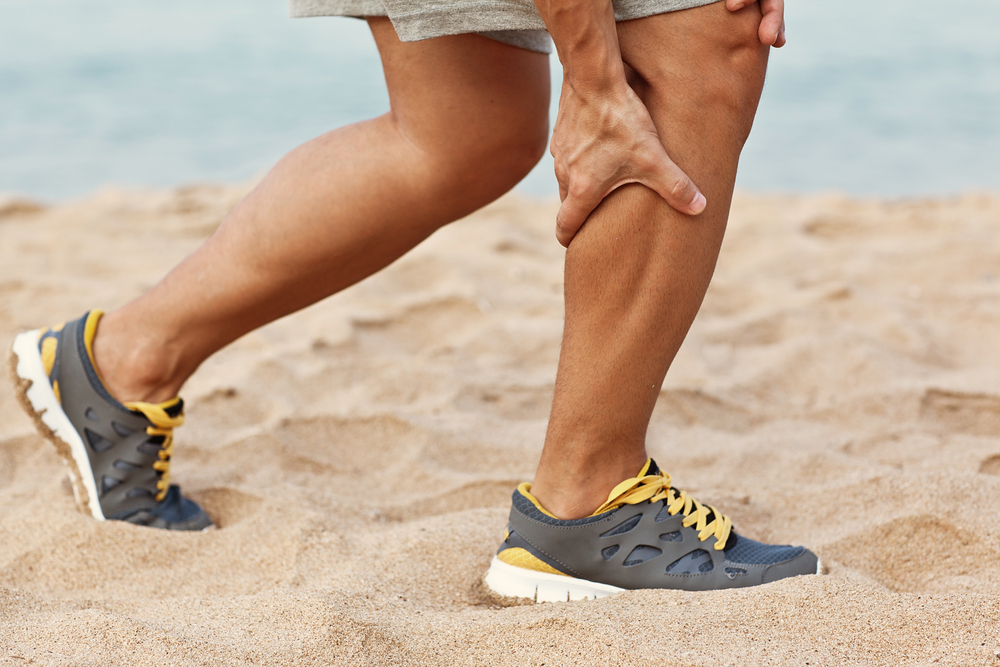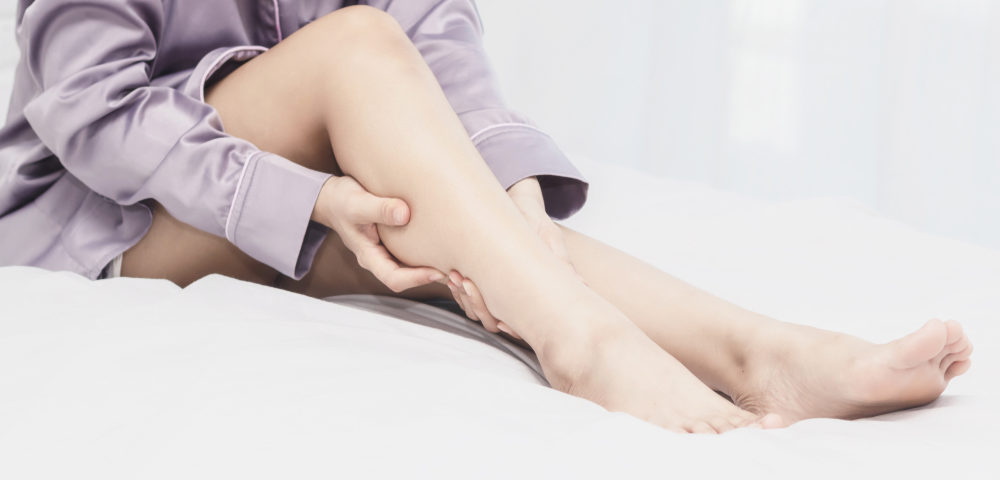
Charley Horses: Frequently Asked Questions
August 29, 2018
5 Foods for Healthy Veins and Arteries
August 30, 2018Leg Cramps Frequently Asked Questions
There are many things that can cause individuals to wake up in the middle of the night including loud noises, being too hot or too cold, and stress or anxiety. However, leg cramps not only disrupt sleep, but they can also lead to pain and discomfort for a few seconds to several minutes.
In fact, the average duration for a leg cramp is 9 minutes, and some men and women can experience muscle tenderness for up to 24 hours.
While they’re usually harmless and resolve without issue, it’s important for patients to be aware of the potential causes and treatments for leg cramps. Here’s what you need to know.
What Are Leg Cramps?
Leg cramps are sudden, painful involuntary muscle contractions in the feet, calves, and thighs. They often occur during periods of rest or sleep and can affect children and adults.
Patients rarely need to be concerned about leg cramps, unless they are a symptom of an underlying medical condition.
Who’s at Risk for Leg Cramps?
Leg cramps can present spontaneously in almost any person, but some individuals are more prone to them.
Older individuals are at an increased risk for leg cramps, especially those that are 50 or older and do not exercise regularly to preserve muscle mass.
Pregnant women also encounter leg cramps more frequently than other individuals.
What Are the Causes of Leg Cramps?
Leg cramps often happen for no specific reason and resolve on their own.
Nevertheless, they have been linked to certain factors that include: Dehydration, medications (i.e. intravenous iron sucrose, conjugated estrogens, naproxen, raloxifene, and teriparatide), having flat feet, alcohol abuse, and conditions like diabetes and peripheral artery disease.
Additionally, muscle fatigue is one of the most widely-recognized causes of leg cramps. More specifically, stress and overuse of muscles during exercise can lead to cramping and is common in athletes.
Finally, some researchers believe that sleeping position (i.e. feet stretched out and shortened calf muscles) can also contribute to leg cramps.
How Can Leg Cramps Be Treated?
The treatment of leg cramps is usually limited to at-home remedies such as: Stopping the activity that caused the cramp; stretching and massaging the muscle; holding the leg in the stretched position until the cramp stops; applying heat to muscles that are tight or tense; and using cold packs on tender muscles.
Over-the-counter medications can manage residual pain or discomfort, and some evidence suggests that calcium channel blockers, carisoprodol, vitamin B-12, and multivitamins may help.
That being said, patients should contact a vein specialist if they are worried about their leg cramps. He or she can assess symptoms and rule out or diagnose any underlying medical issues.
For a thorough consultation and to learn more about the causes and treatment of leg cramps, please call the Vein Center of Maryland to schedule an appointment.
We are conveniently located in Westminster, Eldersburg, Baltimore, Hunt Valley and Bel Air, Maryland.
We also service Ellicott City and Columbia in Howard County.



